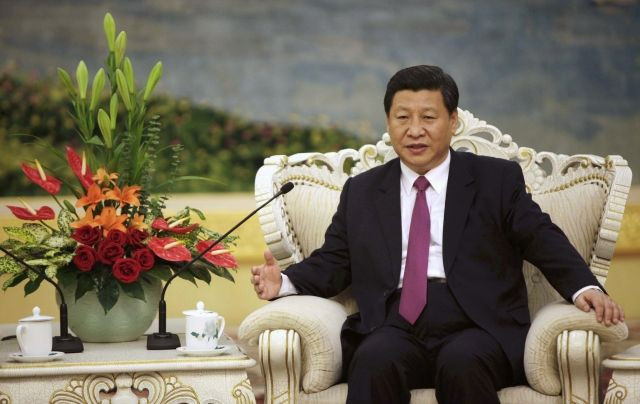China's New National Security Committee: A Combination of The NSA And NSC

China’s top leaders recently concluded the biggest government meeting to date under the leadership of President Xi Jinping, the Third Plenum. While ambiguous language overwhelmed the meeting’s final communiqué, with vague descriptions of “comprehensive” and “deep reform” that Chinese netizens panned for their meaniglessness, one specific that was detailed during the four-day meeting’s summary was the formation of a new government body: the National Security Committee.
The new committee has been rumored to be China’s version of the America’s National Security Agency combined with the National Security Council.
While the communique confirmed the creation of the new bureau, it did not offer much else: “A national security committee will be established to perfect the national security system and national security strategy and safeguard national security.” According to a report by Hong Kong-based South China Morning Post, the committee will be headed by current Politburo member and longtime policy advisor, Wang Huning, as the group’s executive deputy director. He will be joined by members from various government agencies, including diplomats, military leaders, intelligence analysts, and people from trade bodies.
The committee was established as the country adjusts to its status as one of the world’s top political and economic centers as well an expanding military powerhouse. The committee will oversee a variety of mounting challenges that the emerging superpower has already been faced with at home and overseas. Under the helm of President Xi Jinping, who was picked as Hu Jintao’s successor last November, China has embarked on a more aggressive foreign policy, asserting a military presence further and further away from its own shores andd remaining firm regarding various territorial disputes in surrounding areas, particularly the Diaoyu/ Senkaku Islands with Japan, and the Huangyan Island/ Scarborough Shoal with the Philippines.
It is likely that the national security committee will also handle tension rising within the country as well. China’s population of Uyghurs and ethnic minorities living in and around the nation’s Northwestern Xinjiang region and Tibet Autonomous Region have long been targets for public unrest, particularly among the majority Han Chinese. Clashes between the two groups and unrest in the regions are almost inevitable, particularly following the recent car crash attack in Beijing’s Tiananmen Square in late October which took five lives. Beijing authorities have called the incident a “terrorist attack” and have arrested five Uyghurs for their connection to the crash.
Prior to the committee’s formation, various bureaus had a hand in aiding and coordinating regarding such issues. The South China Morning Post said that though the concept of a central security bureau had been originally floated by former President Jiang Zemin in 1997 after visiting the US National Security Council, plans never manifested because a political reshuffle would have demoted some vested interests.
“The structure of China’s national security committee will be similar to that of the U.S. NSC,” Jin Canrong, professor and deputy dean of Renmin University’s international studies program said. The NSC, which works tightly with the NSA, uses the intelligence from a spectrum of U.S. government agencies, and reports directly to the President.
© Copyright IBTimes 2024. All rights reserved.






















